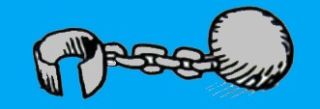Trafficking in Persons Annual Report 2021 – Ireland must do more

As of February 2021, over 178 countries, of which Ireland is one, were party to the UN Trafficking in Persons Protocol. The Protocol defines trafficking in persons to
“mean the recruitment, transportation, transfer, harbouring or receipt of persons, by means of the threat or use of force or other forms of coercion, of abduction, of fraud, of deception, of the abuse of power or of a position of vulnerability or of the giving or receiving of payments or benefits to achieve the consent of a person having control over another person, for the purpose of exploitation. Exploitation shall include, at a minimum, the exploitation of the prostitution of others or other forms of sexual exploitation, forced labour or services, slavery or practices similar to slavery, servitude or the removal of organs”.[1]
The crime then of trafficking is made up of three distinct parts, the act, the means and the purpose.
In June 2021, the US Department of State released the Trafficking in Persons Annual Report 2021. They assess each country’s efforts to combat trafficking and designate each country one of four tiers.
- A Tier 1 country is one that fully complies with The Trafficking in Persons Act's minimum standards for the elimination of trafficking.
- A Tier 2 country is that does not fully comply with the minimum standards but is making significant efforts to bring themselves into compliance.
- A Tier 2 Watch List country is one that does not meet the minimum standards but has been deemed to be making efforts to comply. It is found to either have a significant number of trafficking victims or the number of victims and that country is not doing enough to combat it. A Tier 2 Watch List country may also be a country that has been unable to demonstrate an improvement on the previous year.
- Tier 3 country is one that neither satisfies the minimum standards nor demonstrates a significant effort to come into compliance. Countries in this tier are subject to potential non-humanitarian and non-trade sanctions.
This placement is less about the actual scale of the problem in that country and more about what that Government is doing to combat it.
For the second year running, Ireland has been deemed a Tier 2 Watch List country, dropping from Tier 1 to Tier 2 in 2018. The Report acknowledges that steps are being made, such as designating an independent human trafficking national rapporteur and the establishing of a formal national anti-trafficking forum, however despite increasing funding for antitrafficking public awareness campaigns and training, as well as victims assistance, the Report notes that the Irish Government “did not demonstrate overall increasing efforts compared to the previous reporting period, even considering the impact of the COVID-19 pandemic on its antitrafficking capacity…The Government continued to have systemic deficiencies in victim identification, referral, and assistance, and lacked specialized accommodation and adequate services for victims”.[2]
The most recent report on Ireland’s performance on implementing the Council of Europe Convention on Action against Trafficking in Human Beings, published in September 2017[3], confirmed that trafficking was on the increase in Ireland, mainly for sexual and labour exploitation. It suggested that there was a mismatch between the demand for workers and legal migration options for those workers which can create the conditions for trafficking. They note a high number of undocumented migrants working in personal care, hospitality, fisheries, and agriculture (including illegal activities such as cannabis grow houses). While all of these individuals may not have specifically been trafficked into Ireland, their precarious employment conditions puts them at a serious disadvantage and restricts their choices. In 2019, 42 suspected trafficking victims were identified, 38 of these were women and three quarters of them were trafficked for sexual exploitation.[4]
The Department of Justice and Equality committed in June of 2020 to study the recommendations contained in last year’s Trafficking in Persons Report and stated that ending the crime of human trafficking is a priority for the country.[5] If this is commitment is to be meaningful, the Government must implement the necessary resources to ensure that victims of trafficking are identified quickly and receive the supports required to recover from exploitation. These include:
- Ensuring that law enforcement are equipped and trained to identify victims, especially of labour trafficking, child victims and forced criminality.
- Expanding the scope of those who are currently allowed to make formal victim identification to NGOs, social workers and healthcare professionals and ensure they are trained and supported.
- Ensuring that safe, appropriate accommodation and supports are offered and available to trafficking victims.
- Implementing a third National Action Plan that includes a timeframe, budget and specific allocation to ministries.
- Increasing access to legal assistance and legal services to trafficking victims.
[1] https://www.unodc.org/unodc/en/human-trafficking/protocol.html
[2] https://www.state.gov/wp-content/uploads/2021/07/TIP_Report_Final_202107...
[3] https://rm.coe.int/greta-2017-28-fgr-irl-en/168074b426
[4] https://www.immigrantcouncil.ie/campaign/ending-human-trafficking
[5] https://www.gov.ie/en/press-release/4d124-statement-in-relation-to-the-t...